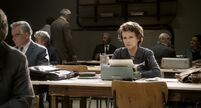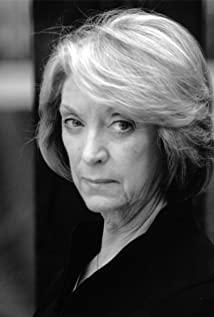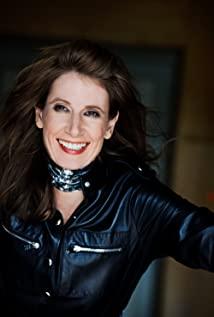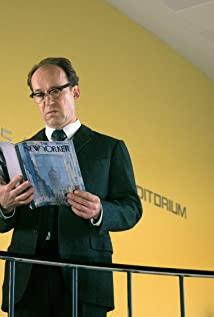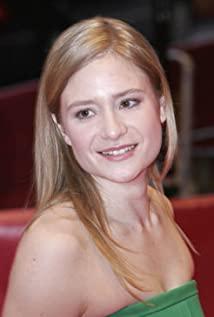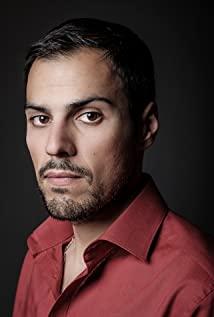The speech on the evil of mediocrity is deafening, "The wind of thinking brings not knowledge, but the ability to distinguish between right and wrong and beauty and ugliness." the monstrous evils”, Hannah Arendt’s political philosophy is intriguing, her banal evil and Jung’s collective unconscious seem similar, tearing apart a human hypocrisy, saying that more than just persecutors , the victim also has a share. The height of her theory in political philosophy, or at least in philosophy, is unquestionable; but in the context of the brutal persecution of millions of Jews, her words would undoubtedly be regarded as A poignant mockery of Auschwitz's blood and tears, her great insight into the evil of banality is defiant arrogance. So she received all kinds of malicious letters, best friends and family left her, and no one wanted to dine with her at the restaurant. But she didn't stop fighting, and Heinrich asked if she was still going to make those comments knowing all this was happening, and she said yes, I would. When the Israeli Intelligence Service sent someone to threaten her, she scolded firmly and sarcastically, "You told me not to publish a book, and you call that decency."
Hannah Arendt herself, her life is also a life of struggle, but her struggle is forbearance and silence. Her greatest weapon is the ability to think. She uses thinking to blunt hatred, tolerate hatred, and then transform it into a quiet and strong force. I think her first meeting with Heidegger greatly shaped her life, or Heidegger as a person shaped her greatly. When her best friend asked her what kind of existence Heidegger was to him, Hannah Arendt replied that there is something more meaningful than someone's existence, what is that, that is a quality of a philosopher, A secret and powerful force that distinguishes man from other animals is "reason" in the words of the Enlightenment, Voltaire and Kant, "understanding" and "obedience" in Heidegger's philosophy, Hannah Arendt thought it was "thinking". Thinking about philosophy is like Heidegger said that it is a dialogue between oneself and one's inner loneliness. Thinking is a struggle, it is to face the ugliness and hatred, the most primitive bloody passion and vitality. Heidegger said that we live because we live. We exist first, thinking keeps us alive, struggle keeps us alive, and if we give up fighting, give up thinking, then we give up living. "Transcendence" also speaks of this principle. Hannah Arendt is braver than we are, she thinks evil, she never stops struggling to die, and she not only thinks, she expresses, steadfast, to the death. She is not fighting for her position, and she is not only fighting for her philosophy. She is fighting for the hidden and great power that makes all mankind civilized. And now we seem to be less and less of that power.
The film is very modern in terms of the way the film is shot, with no climax, the narrative is flat, flashbacks of memory, the smooth flow of time, a photo like Proust's Madeleine cake, evokes emotional surges. .
View more about Hannah Arendt reviews





